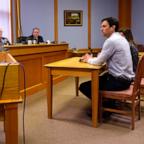Experimental Test May Aid Decisions After Failed IVF
An experimental test may one day help couples decide whether to invest in IVF.
July 20, 2010— -- Only one in four attempts at in-vitro fertilization, or IVF, results in a live birth, despite a slow but steady rise in the overall success rate of these procedures.
Now, a new model developed by a team of researchers from Stanford University could significantly improve the accuracy with which fertility specialists predict IVF success after an unsuccessful attempt.
Currently, patients who have attempted IVF and who have not been able to get pregnant from it have little more than general age-related prognostic criteria on which to base future tries. And with an average cost of $12,400 per cycle, according to the American Society for Reproductive Medicine, as well as the psychological distress associated with infertility, decisions surrounding IVF are complex to say the least.
The researchers hope this new test will help cut through at least some of the uncertainty when it comes to these procedures.
"We have established an externally validated, highly discriminatory, well-calibrated, and robust prediction model that can use available clinical data from a previous cycle to predict live birth rates in a subsequent cycle, without additional clinical or laboratory testing," Prajna Banerjee and colleagues reported online in the Proceedings of the National Academy of Sciences.
Using data from unsuccessful attempts at IVF, the model provided more accurate results in 60 percent of second-cycle IVF procedures. In more than half of the cases, the model improved the odds for live birth compared with age-based criteria.
In addition to age, factors such as hormone levels, endometrial thickness and body mass index influence the likelihood of IVF success. And after one attempt, the details of such factors are known.
"Any information you can give a patient that can help them make a decision about IVF is going to be very helpful," said Dr. Michael Thomas, professor and director of Reproductive Endocrinology and Fertility at the University of Cincinnati Academic Heath Center. "It looks like this model has potential, but it has to be validated by other centers."




